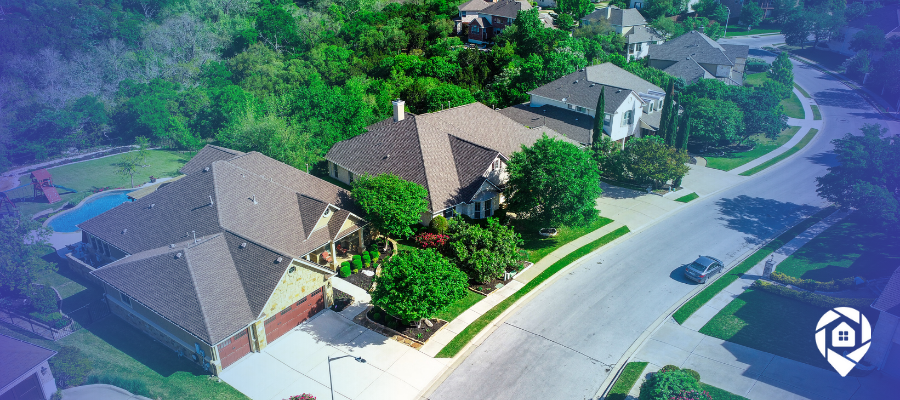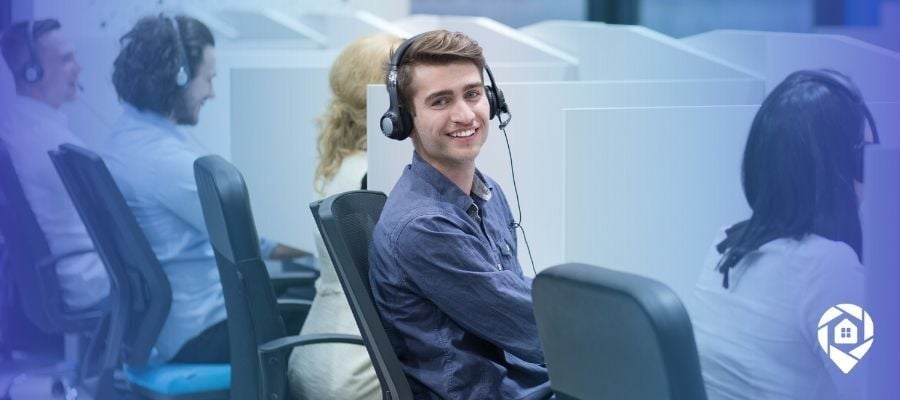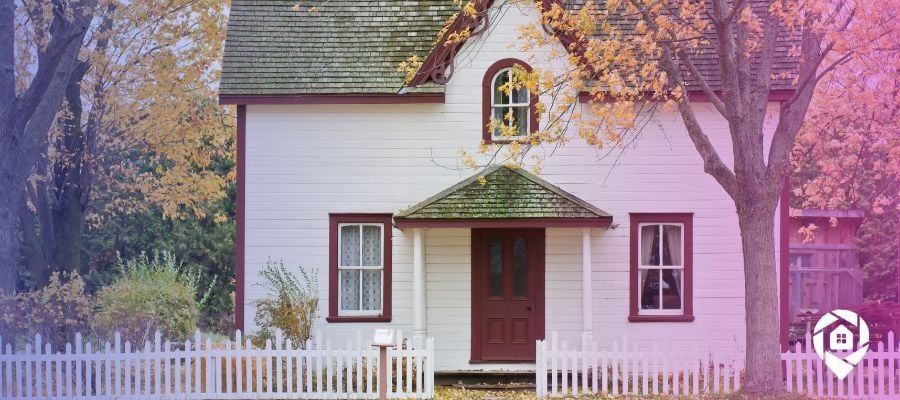
How to Flip Land in the US from Abroad: Colin Murphy’s Remote Real Estate Strategy

Want to flip land in the US while living abroad? Learn how Colin Murphy, an Irish real estate investor based in Spain, built a successful land flipping business in Florida, completely remotely.
In this guide, you’ll discover how he transitioned from flipping houses to flipping land, how he finds motivated sellers, how he funds real estate deals without using his own cash, and what it takes to legally and efficiently run a US real estate business as a foreign investor.
Colin once ran a high-volume house-flipping operation in Tampa Bay. At his peak, he and his partners completed nearly 100 house flips in a single year. They renovated homes and sold them to out-of-state investors looking for rental properties in Florida.
Over time, Colin’s goals shifted. He wanted a simpler business model, one he could control from Europe with fewer moving parts. That’s when he discovered remote land investing in Florida.
Unlike houses, land doesn’t require renovations, permits, or managing contractors. Most of his current deals involve buying deeply discounted land and reselling it close to market value with minimal physical involvement.
“My ideal year is to do like 15 deals that make me $100,000 each. I don’t want to do 100 deals that make me $10,000 each.” — Colin Murphy
Why Colin Operates His US Land Business From Europe
Spain offers a lifestyle Colin enjoys, great food, culture, and climate. But for business, he believes the US remains the best place to operate.
With tools like remote online notarization, power-of-attorney signings, and shared dashboards, Colin has proven that it’s possible to run a US real estate business from Europe without compromising on quality or profits.
“Europe is a great place to live... but America is where you want to do business.” — Colin Murphy
Watch the full conversation with Colin Murphy to hear exactly how he runs a profitable US land-flipping business from Spain—including the tools, strategies, and mindset behind his success.
From International Sales to US Market Mastery
Colin didn’t start in Florida. In the early 2000s, he ran a Dublin-based firm that sold real estate in emerging markets to British and Irish buyers. When the 2008 global financial crisis hit, that model collapsed.
That’s when he and a business partner pivoted to Florida. They began marketing discounted condos to international buyers. Eventually, they transitioned to house flipping, serving American investors looking to grow rental portfolios in affordable markets.
Scaling Up: 100 House Flips in One Year
By 2019, Colin’s business was acquiring and flipping two properties per week. But high volume meant high complexity—contractors, appraisals, renovations, and funding headaches.
While the gross margins were decent (10–15%), house flipping required more cash, coordination, and risk. When COVID-19 disrupted operations, Colin moved back to Spain and reassessed.
That’s when he committed fully to flipping land in the US remotely.
Why Land Flipping Beats Houses for Remote Investors
Land is a leaner, lower-risk model ideal for investors operating from abroad. Colin’s approach:
- Buy land at 50–60% of market value
- Resell near retail
- Skip renovations, permits, and holding costs
- Focus on 1–5 acre residential parcels in buildable zones
A typical deal might look like this:
- Buy for $60,000
- Sell for $100,000
- With no physical rehab or delays
Colin avoids flood-prone areas and entitlement-heavy deals. Instead, he looks for clean zoning, confirmed utilities, and strong resale potential.
How He Finds, Values, and Markets Land
As a licensed Florida agent, Colin uses MLS and public data to comp vacant residential lots. His core strategy focuses on:
- Vacant land in Florida, 1–5 acres
- Zoned for single-family homes
- Outside flood zones
- Consistent demand and recent sales activity
Marketing relies on:
- Strong photos and maps
- Accurate listing descriptions
- Broad exposure on land listing platforms
- Responsive, agent-friendly communication
Seller Targeting: Data-Driven Lead Selection
Colin doesn’t just market to anyone. After analyzing hundreds of deals, he found that most of his successful sellers:
- Are 65+ years old
- Have owned the land for 10+ years
- Live out of state or far from the parcel
- Have low emotional attachment to the land
He avoids:
- Recent buyers (especially from 2004–2006)
- Local owners with personal plans for the land
- Corporate or institutional sellers (e.g. builders, HOAs, counties)
“People under the age of 75 don’t even sell me land at all. It’s always the older generation.” — Colin Murphy
His Remote Marketing Funnel: Mail, Texts, and Systems
Colin generates most of his leads through direct mail and text marketing, using a repeatable cadence:
Direct Mail:
- 4–5 letters spaced 7 weeks apart
- Slight variations in wording to avoid repetition
Text Messages:
- Sent 2–3 weeks after each letter
- Human tone with typos added intentionally to avoid sounding like a bot
His numbers:
- 8,000+ texts/month
- 8,000–10,000 letters/month
- 45–50 qualified leads
- 15–20 offers
- 2–3 closings/month
How He Runs a Lean Business from Spain
Colin’s operation runs with just a few key tools and team members:
- Virtual assistants (US hours) handle list pulling, data scrubbing, text campaigns, and CRM
- Colin handles seller calls in a 2–3 hour daily window aligned with Florida mornings
- He uses DealMachine, MLS access, and bundled data platforms for efficiency
Smart Financing: Mixing Credit Lines and Private Capital
Unlike house flipping, land deals require less capital but larger flips still need funding.
Colin’s model:
- Business line of credit for smaller ($20K–$60K) deals
- Private lenders for larger six-figure flips
- Operational cash reserved strictly for running the business
This ensures stability even if sales slow in a given quarter.
Legal & Tax Structure for Non-US Investors
Setting up a US business from abroad isn’t impossible; it just requires planning.
Colin recommends forming a corporation instead of an LLC for non-US residents to avoid pass-through tax issues.
- US corporation pays its own taxes
- Owner draws a salary (taxed in their resident country)
- Remote notarization and US banking make operations possible
“As a non-resident, you want a closed entity that pays its own tax and pays you a salary. It’s cleaner and more efficient.” — Colin Murphy
Why Community Still Matters
Even from Spain, Colin prioritizes attending in-person masterminds and real estate events several times a year. They offer:
- Sales and marketing insights
- Funding strategies
- Networking and partnership opportunities
- Personal recharging and connection
He also mentors newer investors and builds relationships that often lead to joint ventures or referrals.
Key Takeaways for Remote Land Investors
- Target residential land with steady demand
- Focus on sellers 65+ with long tenure
- Use mail and text funnels with consistent cadence
- Hire VAs to run the front end
- Fund deals with credit lines and private lenders
- Choose the right legal structure for tax efficiency
- Build a business that fits your lifestyle, not the other way around
FAQ: Running a Remote Land-Flipping Business
Can I flip land in the US while living abroad?
Yes. Set up a US-based business entity, open a bank account, and use VAs and tools like DealMachine to manage everything remotely.
What’s the best type of land to flip remotely?
1–5 acre residential parcels, outside flood zones, in counties with consistent buyer demand and easy-to-verify comps.
How much money do I need to start flipping land?
You can start with $20K–$60K. Use private lenders or a business line of credit to scale without risking all your cash.
Do I need to be a US citizen to invest in real estate?
No. Foreign nationals can legally own and flip real estate. Most set up a US corporation to simplify taxes and operations.
How do I comp land from abroad?
Use MLS and public data to check recent sales. For larger or commercial parcels, use LoopNet, CoStar, or local brokers.
Final Thoughts
Colin Murphy shows that flipping land in the US from abroad is not only possible—it’s scalable and profitable. By choosing simplicity over volume, building smart systems, and focusing on lifestyle as much as revenue, he’s created a business model that fits his life and not the other way around.
If you’re a foreign investor wondering how to flip land in the US remotely, his story is proof that it can be done with the right model, mindset, and systems.

About Maria Tresvalles
Maria Tresvalles is the dynamic Marketing Specialist at DealMachine, where she has been a key player for the past five years. With a strong background in customer relations, Maria started her journey at DealMachine as a Customer Success Coordinator, where she honed her skills in understanding customer needs and driving satisfaction.



